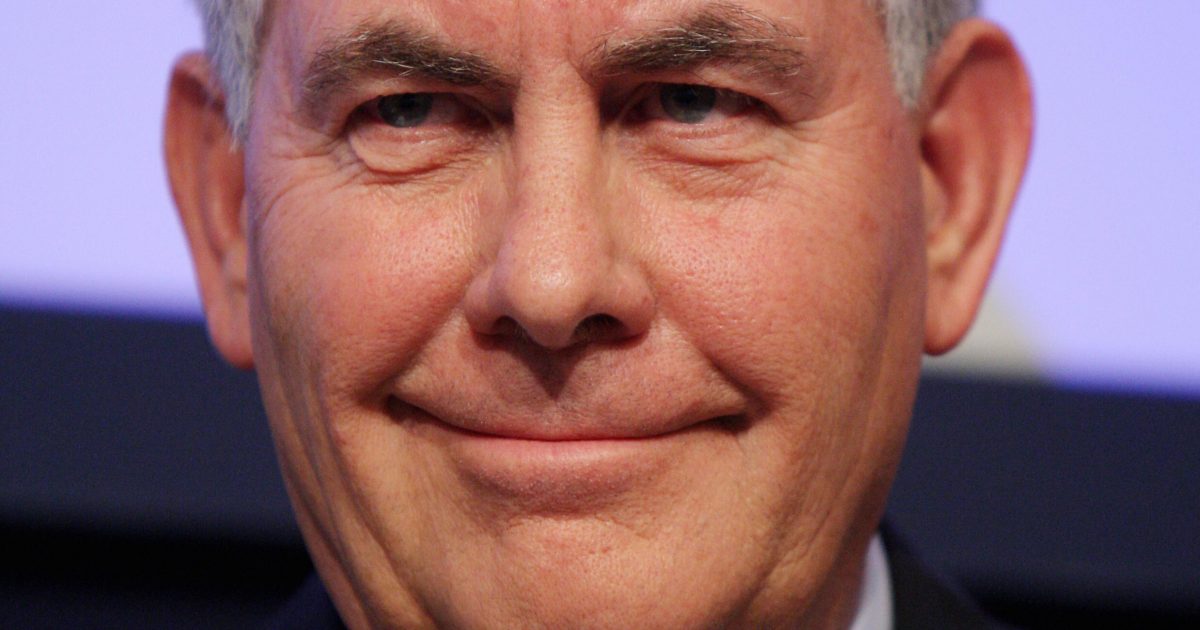Rex Tillerson Battled Kidney Cancer After White House Exit
- Former Secretary of State Rex Tillerson, 69, battled kidney cancer after ignoring his symptoms for months while working in the White House.
- Tillerson said that he experienced severe stomach pain for two months before his diagnosis that he chalked up to "stress, poor eating habits, long travel, and little sleep."
- Patients whose kidney cancer is detected before the disease has spread can often beat the disease with surgery, experts told SurvivorNet.
According to Bloomberg, the former chairman and CEO of Exxon Mobil Corp. revealed the details of his cancer journey while speaking at a prayer breakfast in Houston during the World Petroleum Congress.
Read More
"I am certain that if I remained at State and Washington D.C., I would have continued with that stomach pain," said Tillerson. "And by the time we would have found it, it probably would have been at Stage III, or even worse. God brought me home to save my life."
SurvivorNet has also learned Tillerson’s cancer battle inspired him to give his first interview after exiting the White House during an event benefitting MD Anderson Cancer Center.

Tillerson sat down with CBS News’ Bob Schieffer in December 2018 as part of the 10th annual A Conversation With a Living Legend event in Houston. He was selected for his service as the nation's 69th secretary of state from February 2017 to March 2018 and his 11 years as chairman and chief executive officer of ExxonMobil Corporation.
That interview, which later aired on CBS Mornings, raised $1.78 million for the cancer center.
Early Detection of Kidney Cancer
Individuals who detect kidney cancer before the disease has spread can often beat the disease with just surgery.
Tillerson is one of those individuals, having been fortunate enough to catch the disease before it spread.
“If there’s no indication of metastasis or spread to other organs, most patients we will just monitor with follow-up scans done typically initially at six-month intervals,” Dr. Geoffrey Sonn, a urologist with Stanford Hospitals and Clinics, said in a previous interview. “If nothing else arises, patients are usually able to get away with surgery alone. Most do not end up needing radiation; most do not need chemotherapy or other types of medications.”
Dr. Sonn said that those patients can return to “a completely normal life with no changes in activity level, with no changes in diet.”
He did add there could be “some decrease in their overall kidney function, but not enough in most cases to require dialysis.”
Other patients who have no spread but a larger mass may require surgery to remove the entire kidney, though, as Dr. Sonn notes, it is one of the few organs which humans can spare.
“For masses that are too large for partial nephrectomy or ones in a location where that’s not possible, then the surgery is removing the entire kidney,” explained Dr. Sonn. “Fortunately, we have two kidneys, and a single kidney in most patients is enough to get by with not needing to be on dialysis, not having any sort of change that they need in their life.”
He did note that he would discuss the importance of diet, exercise, and other lifestyle choices in these cases.
“After surgery for a partial nephrectomy or a small renal mass, patients are typically in the hospital for a day or two and then go home,” said Dr. Sonn. “If it turns out that it is kidney cancer, which is the most common, most likely event, then we will typically see patients back in three to four weeks just as a post-operative checkup to make sure that the wounds are healing up appropriately, to go over any questions. After that, my follow-up protocol is usually in-person visits and imaging with a CAT scan of the abdomen, with a chest x-ray every six months for a couple of years, and then once a year thereafter.”
The recovery is slightly longer for patients who have a kidney removed, but the outlook is just as good.
“For men with localized kidney cancer that’s completely removed with surgery, I will tell them that there’s approximately 90% chance that the kidney cancer will not come back or they will not go on to die of kidney cancer,” said Dr. Sonn. “So the outcomes of localized kidney cancer are quite good.”
Principal Ballerina Details Her Kidney Cancer Journey
Learn more about SurvivorNet's rigorous medical review process.


